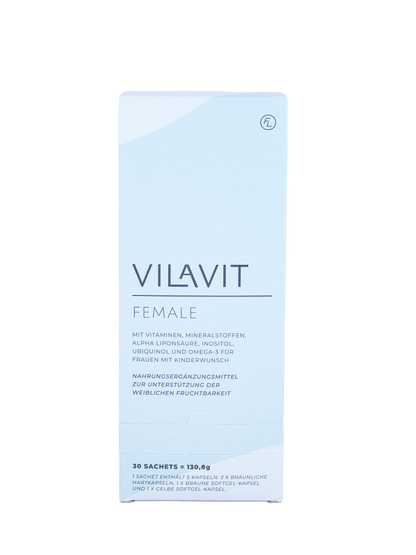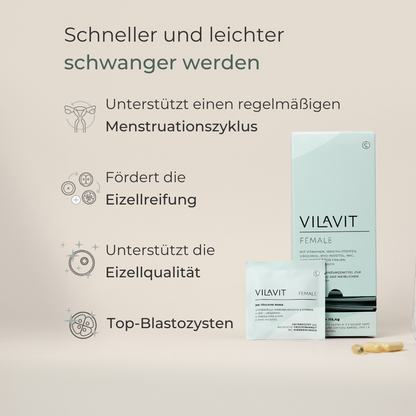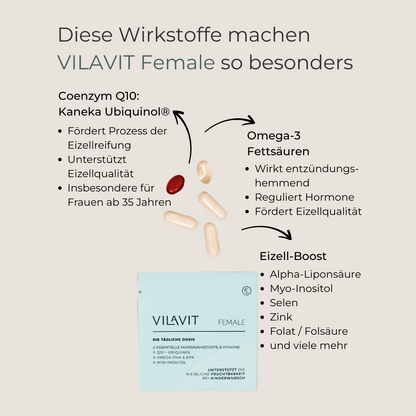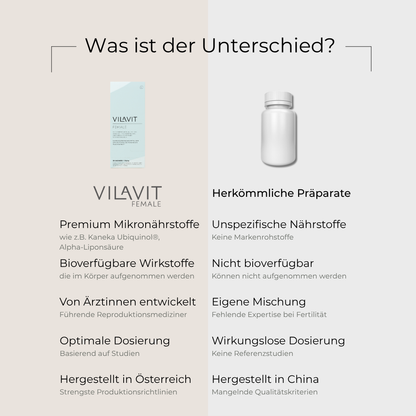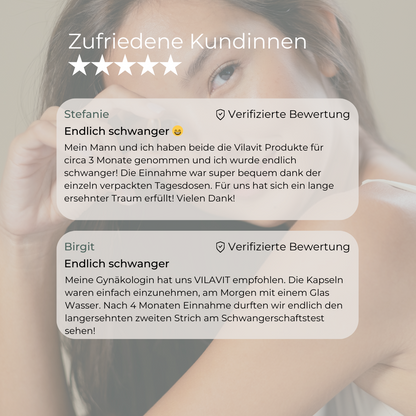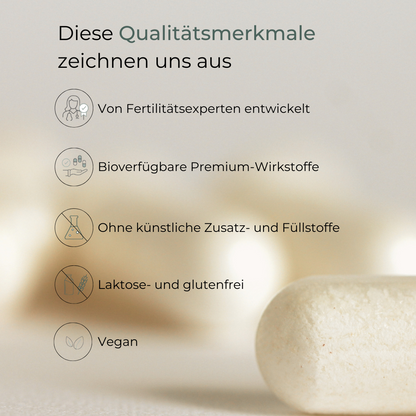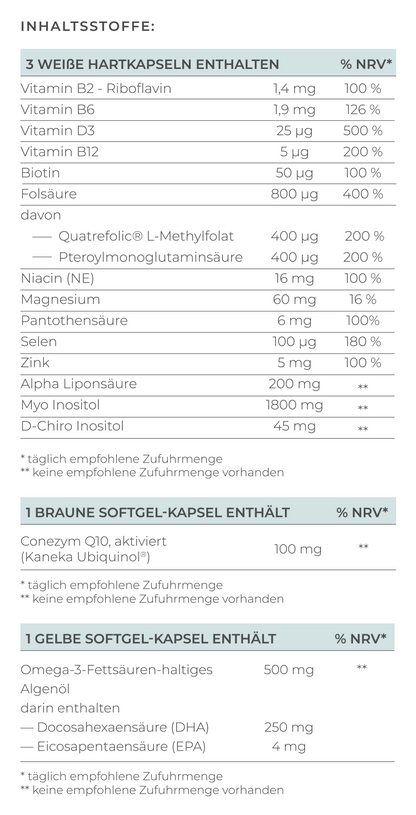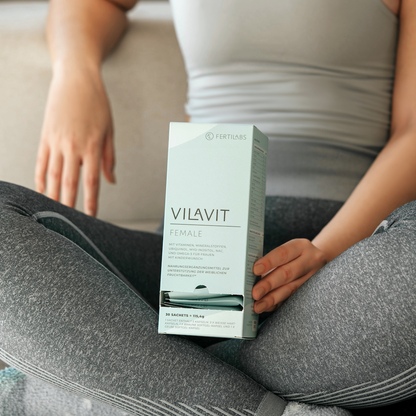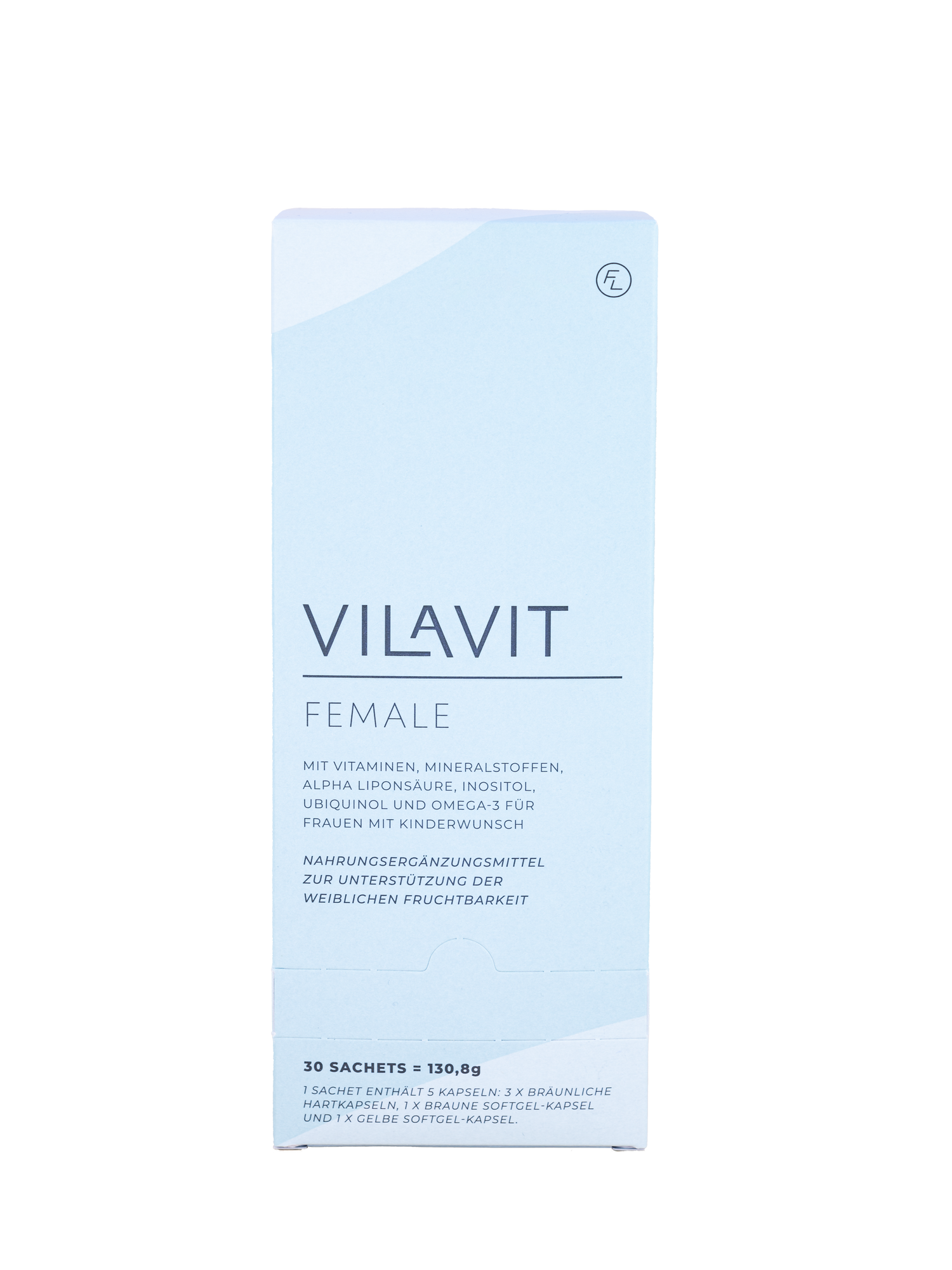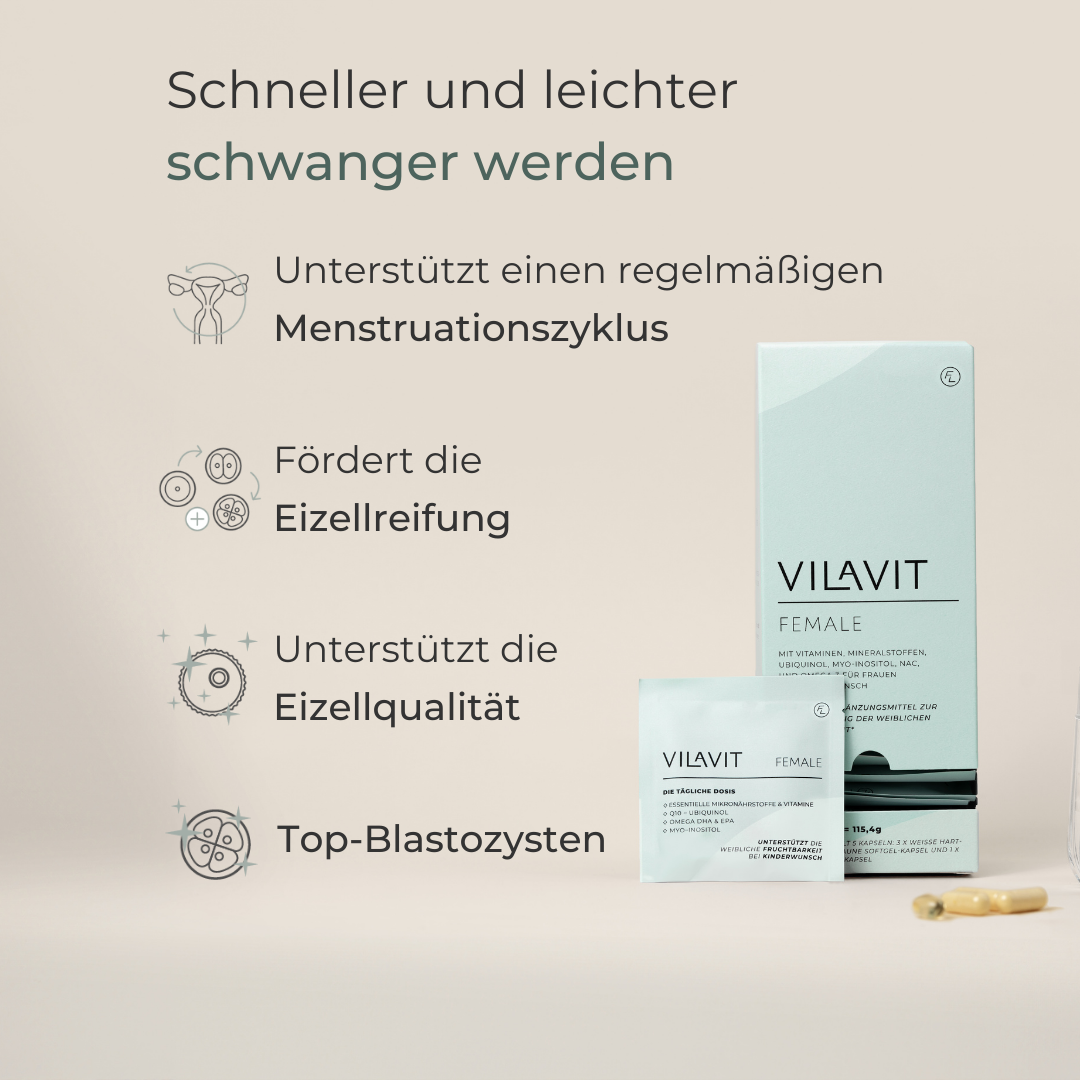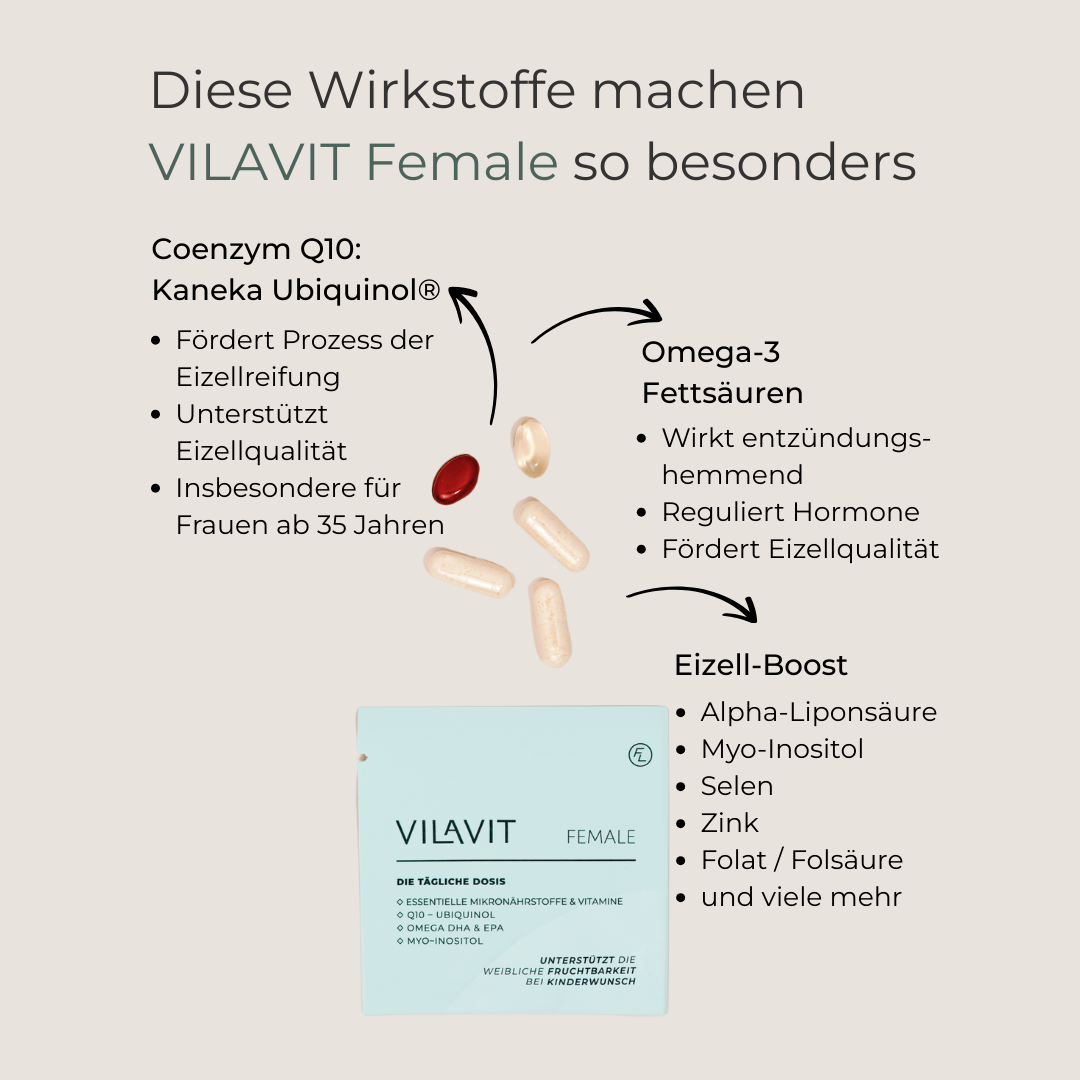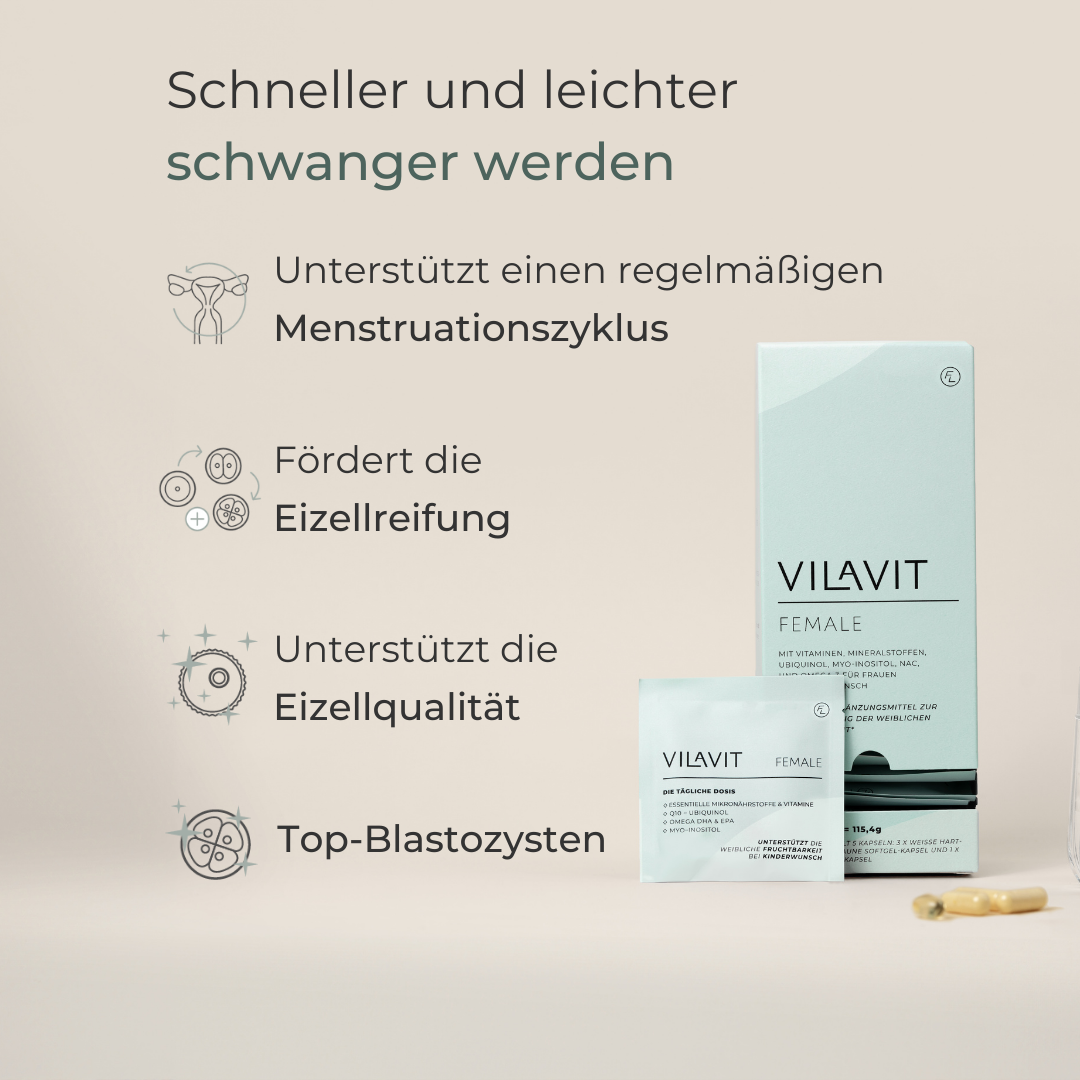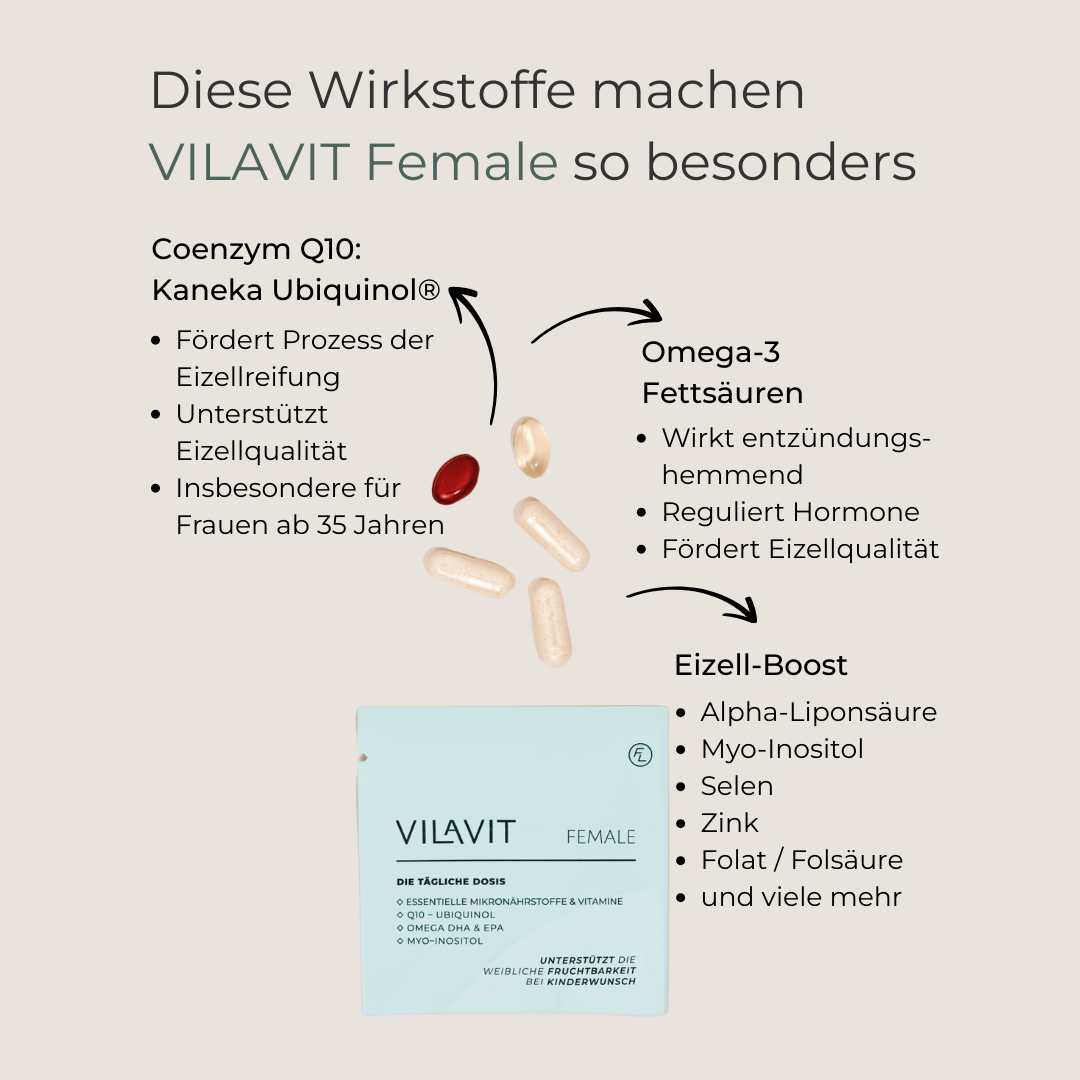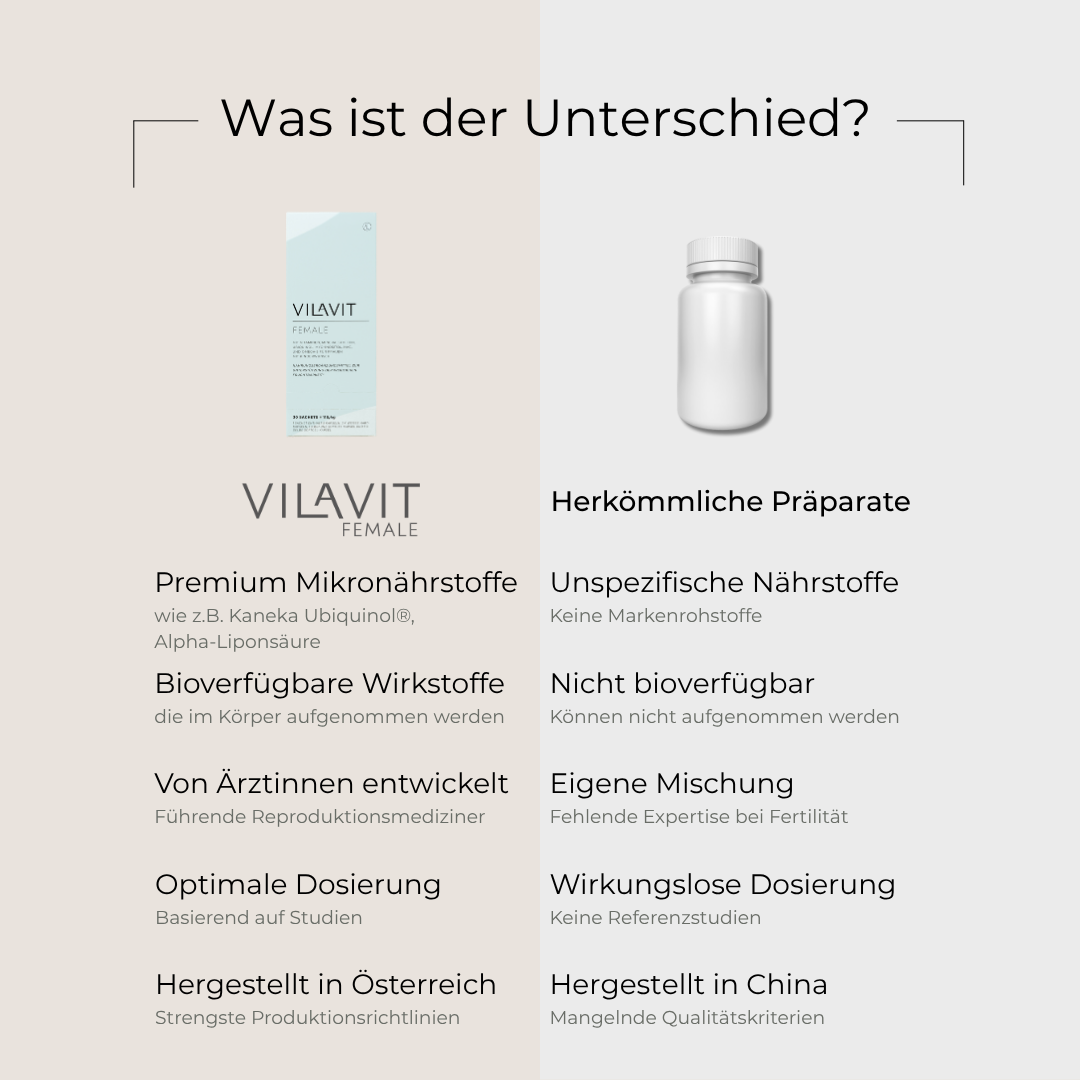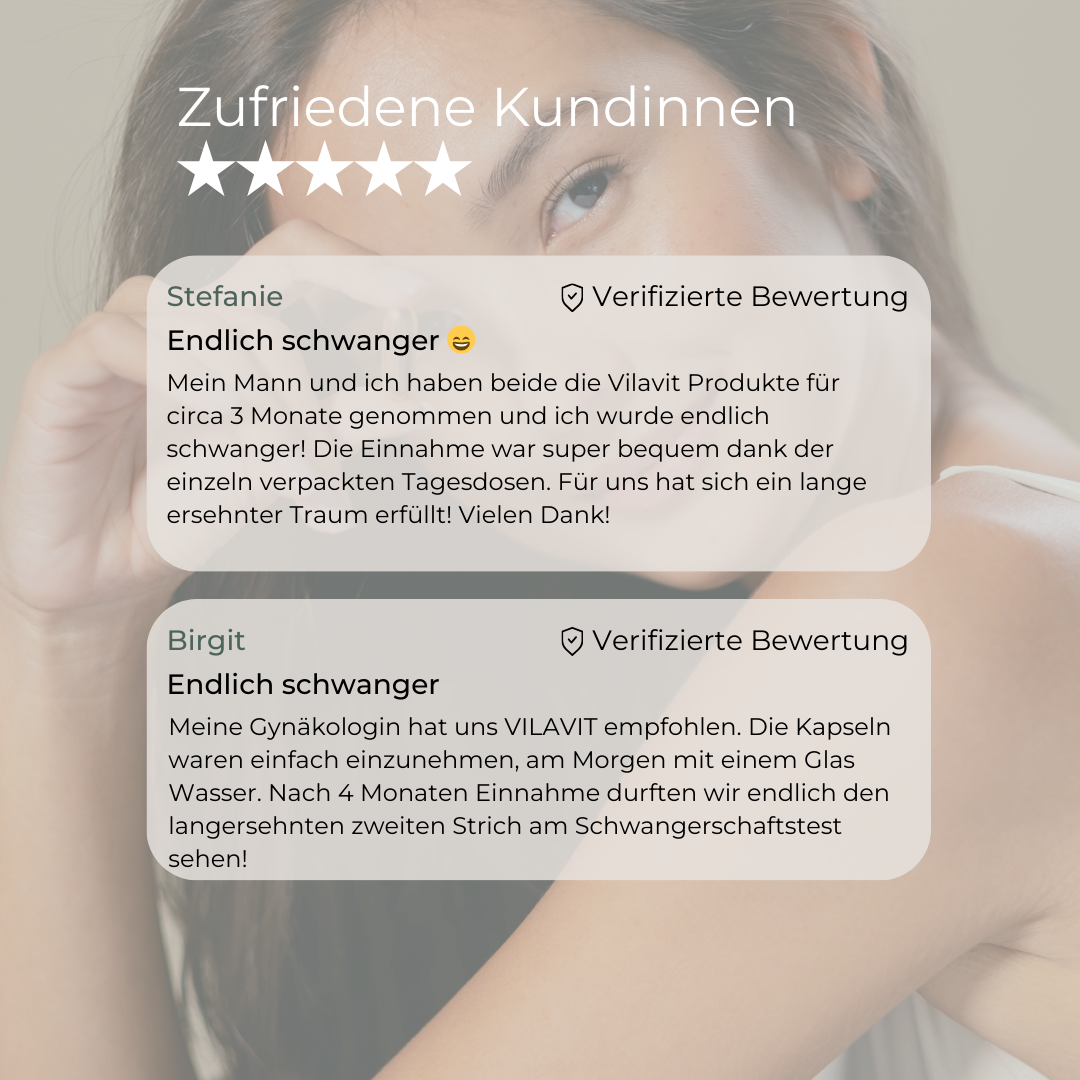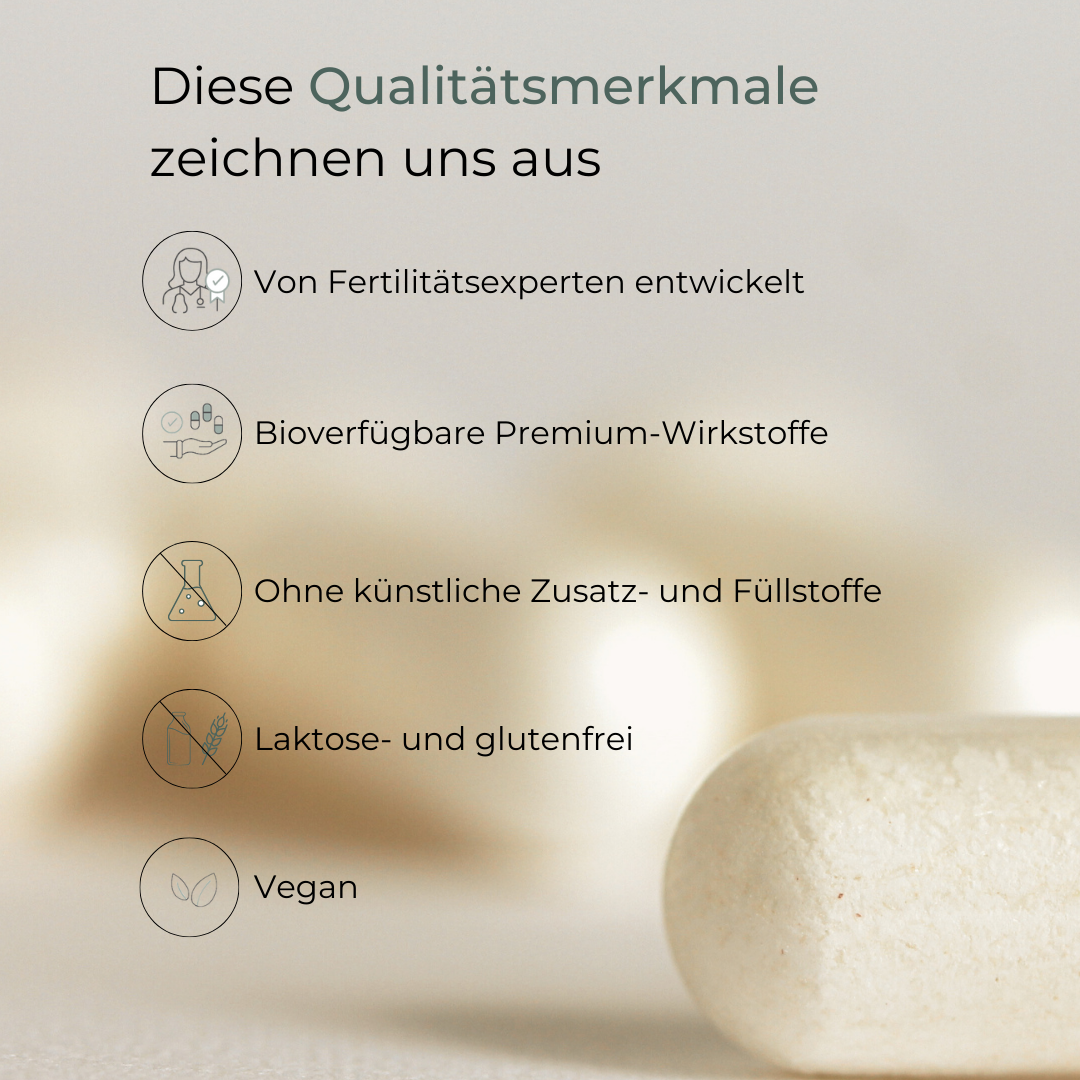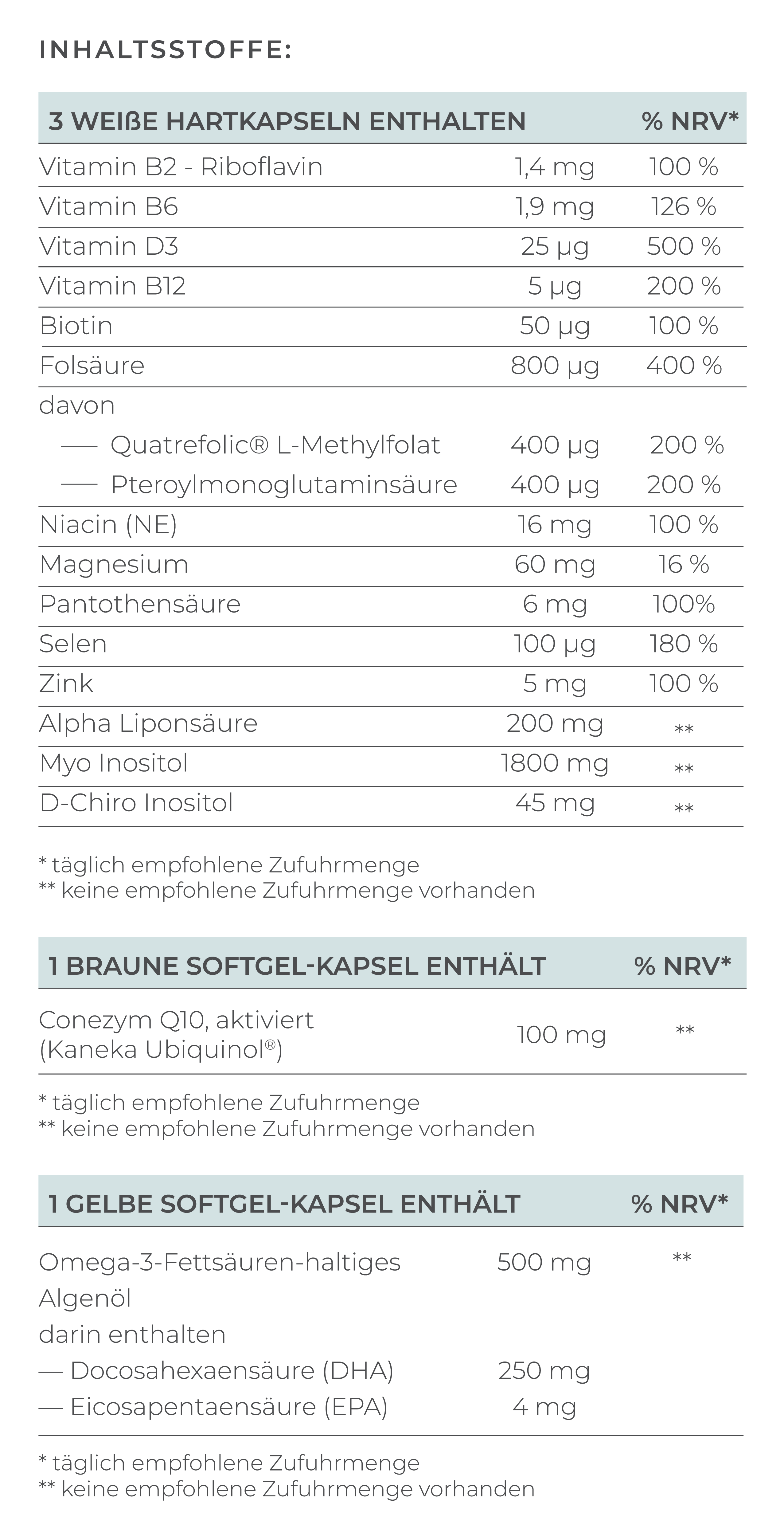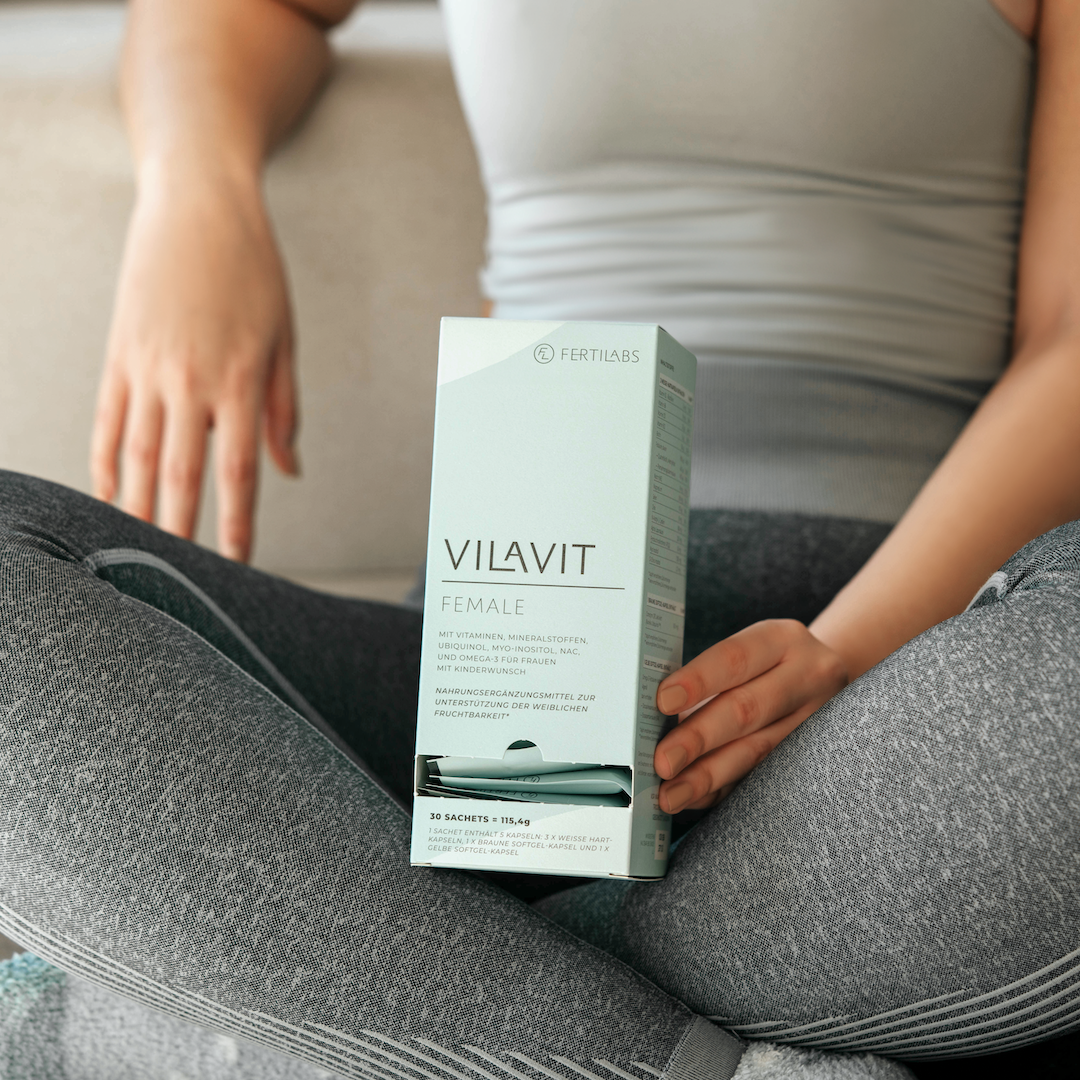The Most Important Information at a Glance
- Women under 35 should consider visiting a fertility clinic after 12 months of unprotected intercourse without pregnancy.
- Women over 35 should seek a fertility clinic after 6 months of unprotected intercourse without success.
- When choosing the right clinic, important factors include personal care, success rates, accessibility, flexible opening hours, and a comfortable environment.
- Good preparation for the first appointment, such as bringing existing medical records and noting open questions, is crucial.
- The cost of in vitro fertilization (IVF) treatment typically ranges from 3,000 to 5,000 euros.
For many couples, starting a family is one of their greatest desires. However, when the longed-for pregnancy doesn’t happen despite regular unprotected intercourse over an extended period, the question often arises: When should you visit a fertility clinic?
When to Consider a Fertility Clinic
Experts recommend seeking medical help if women under 35 have not conceived after one year of unprotected intercourse. For women over 35, consultation with a fertility clinic should be considered after six months. If health issues such as irregular cycles, endometriosis, polycystic ovary syndrome (PCOS), or other known causes exist, an earlier consultation may be beneficial.
What Does a Fertility Clinic Do, and What Treatments Are Available?
Fertility clinics offer a variety of treatments for couples struggling to conceive naturally.
Common treatment methods include:
- Ovulation Induction: This involves stimulating the woman’s ovulation with medication to increase the chances of pregnancy.
- Intrauterine Insemination (IUI): Prepared sperm is directly inserted into the woman’s uterus to improve the chances of fertilization.
- In Vitro Fertilization (IVF): Eggs are retrieved from the woman and fertilized with the man’s sperm in the lab. The embryos are then implanted into the uterus.
- Intracytoplasmic Sperm Injection (ICSI): Often used for severe sperm quality issues, a single sperm is injected directly into the egg.
- TESE / MESE
- Preimplantation Genetic Diagnosis (PGD): A genetic test on embryos to exclude hereditary diseases or genetic disorders as part of IVF.
- Clinics also offer cryopreservation, which involves freezing eggs, sperm, or embryos for future use, especially useful in case of severe health issues.
How to Choose the Right Fertility Clinic
Choosing the right fertility clinic is an important step toward achieving your dream of becoming a parent. Remember that the clinic is not just a medical facility, but that the staff plays a crucial role in your overall well-being.
Carefully research, ask around, and choose a clinic that meets your needs.
Key factors to consider include:
- Personal 1:1 Care: Ensure that the same doctor oversees your treatment so that they are familiar with your medical history and can make informed decisions about the optimal course of treatment.
- Clinic Reputation and Success Rates: Gather information about the clinic by speaking with friends or acquaintances and reading online reviews (e.g., Jameda, Docfinder, etc.). Success rate data can also provide valuable insight and reassure you.
- Location and Travel: Since you will need to visit the clinic several times during treatment, it’s important to choose a clinic nearby to minimize stress and additional burdens.
- Flexible Opening Hours: Some clinics may not offer weekend appointments, which can be problematic as certain procedures like egg retrieval may need to be performed on weekends. Make sure the clinic is flexible in this regard.
- Comfortable Environment: A fertility clinic is not just a place for medical treatments—it’s also a place where emotional well-being plays a significant role. Choose a clinic where you feel supported, your concerns are taken seriously, and you have trust in the team. A compassionate and supportive environment can greatly ease the treatment process.
How to Prepare for Your First Appointment at a Fertility Clinic
Preparing for your first visit to a fertility clinic can cause anxiety. However, the better prepared you are, the more relaxed the conversation will be. The first consultation will focus on identifying the reasons behind the infertility.
Here are some tips for optimal preparation:
-
Bring Medical Documents: Collect all relevant documents such as past medical reports, lab results, and information on previous tests or treatments. The more information the doctor has, the better they can assess your situation. Helpful documents include:
- Pap smear & bacterial and chlamydia cultures to detect possible infections
- Thyroid function tests (TSH, fT4) for possible thyroid issues
- Hormone profile from days 2-4 of the menstrual cycle (including FSH, LH, estradiol)
- Current medication overview
- For men: Sperm analysis to check sperm concentration, motility (movement), and morphology (shape) if available.
-
Cycle Logs: If you have them, bring cycle logs or temperature charts, which provide important clues about potential fertility problems.
-
Health History of Both Partners: Besides your information, the health details of your partner should also be provided. This could include past illnesses, medications, or lifestyle habits affecting sperm quality.
-
Prepare Questions: Write down any questions you want to ask during the appointment, such as potential causes, treatment options, or next steps. Good communication is essential for treatment success.
What Costs Should You Expect for Fertility Treatment?
The costs of fertility treatment can vary significantly depending on the chosen method and associated services. For an IVF cycle, couples should expect to pay around 3,000 to 5,000 euros, while the cost of necessary medications can range between 1,000 and 2,000 euros per cycle. The success rates of IVF treatment depend largely on the woman’s age, with the average pregnancy rate per cycle being around 30%, but this can vary based on individual circumstances.
In Germany, statutory health insurance covers part of the treatment costs if certain conditions are met. In Austria, the IVF Fund reimburses 70% of the treatment costs if the couple meets the necessary criteria.
Conclusion
The path to parenthood can be a challenging journey for many couples. Visiting a fertility clinic can be a decisive step toward realizing the dream of becoming parents. Although this step may seem daunting, selecting the right clinic and preparing thoroughly will help lay a solid foundation for a successful pregnancy.
While keeping medical aspects in mind, don’t forget to also take good care of yourself. Stress can impact fertility, so relaxation and self-care are essential for both body and mind.
FAQs
Can the fertility clinic issue a sick note?
Generally, artificial insemination is not considered a disease. However, if medically necessary, such as in cases of overstimulation, a sick note may be issued.
When should I consider switching fertility clinic?
Switching clinics should be well thought out. It might be necessary if you feel poorly supported, if the attending physician changes frequently, if the clinic does not use the latest techniques, or if you are dissatisfied with the treatment methods. It is important that your medical history is not lost during a change, as each clinic builds on previous cycle experiences. Note that patient data is your property, and you have the right to transfer it to the new clinic to ensure a smooth transition.
How long does it take to get pregnant in a fertility clinic?
How long it takes to conceive in a fertility clinic depends on various factors, including the cause of infertility, the woman's age, the chosen treatment method, and the body's response to therapy.
In some cases, pregnancy may occur after the first IVF cycle, while in others, it may take several cycles. On average, it takes around 3 to 4 cycles to achieve pregnancy through fertility treatment. However, for more complicated cases or repeated failures, it may take longer.




